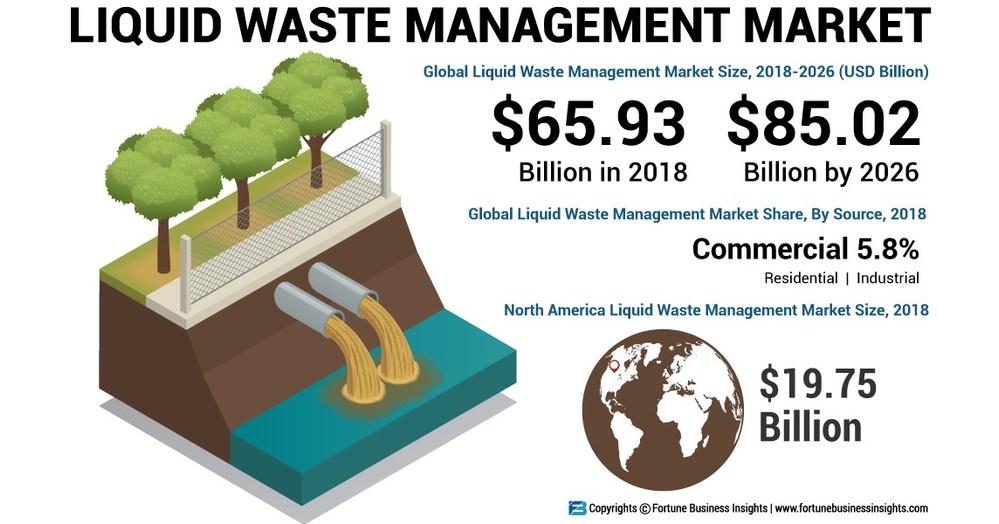Our Reclaim Waste Statements
Our Reclaim Waste Statements
Blog Article
The 5-Second Trick For Reclaim Waste
Table of ContentsNot known Facts About Reclaim WasteReclaim Waste Can Be Fun For EveryoneAll about Reclaim WasteUnknown Facts About Reclaim WasteFascination About Reclaim Waste
Check out the kinds, incidents, and forms of fluid waste. Domestic sewer waste refers to the waste and items from a domestic septic system. This type of waste is developed by human beings in homes, schools, and various other structures. This only includes sewage-disposal tanks that have a drain field. The correct management and disposal of residential sewer waste need fluid waste to be transferred to a sewage therapy plant where the appropriate techniques and tools are related to cleanse and throw away waste.
Business waste frequently includes prospective threats, such as flammable materials or a mix of fluid and strong waste items, and calls for a more advanced and in-depth disposal procedure. The disposal of business waste typically involves the filtration of waste before transportation to guarantee risk-free and correct disposal. Hazardous waste is developed from byproducts and runoff of industrial processes and manufacturing.
This sort of waste can not make use of the exact same sewer monitoring transport or procedures as septic or business fluids. The commercial waste administration procedure needs the evaluation and testing of fluid waste prior to it undergoes the disposal process (liquid waste removal melbourne). Runoff waste is the liquid waste that originates from drainage and excess stormwater in very inhabited areas or cities
Runoff waste can cause contamination and flooding otherwise taken care of effectively. Find out a lot more regarding drain cleaning and waste management. Guaranteeing proper waste management can protect against catastrophes and decrease environmental injury. Both individuals in residential setups and experts in commercial or manufacturing markets can benefit from recognizing the procedures and policies of fluid waste administration.
The Greatest Guide To Reclaim Waste
Call PROS Services today to discover our waste administration and disposal services and the appropriate means to care for the liquid waste you generate.
(https://www.mixcloud.com/reclaimwaste1/)Do you understand what happens to your water when you disengage, flush the bathroom or drain the washing machine? No? Well, it's worth recognizing. This so-called 'wastewater' is not just an essential resource yet, after treatment, will be launched to our land, rivers or the ocean. Made use of water from toilets, showers, bathrooms, kitchen sinks, washings and commercial processes is called wastewater.

water made use of to cool machinery or tidy plant and equipment). Stormwater, a type of wastewater, is drainage that moves from agricultural and metropolitan locations such as roofs, parks, gardens, roadways, courses and gutters into stormwater drains, after rainfall. Stormwater flows unattended directly to local creeks or rivers, ultimately getting to the sea.
Examine This Report about Reclaim Waste
In Queensland, most wastewater is dealt with at sewer treatment plants. Wastewater is moved from residential or commercial websites via a system of sewers and pump stations, referred to as sewage reticulation, to a sewer therapy plant. City governments build, maintain and operate most sewer therapy plants. Operators are accredited under the Environmental Security Act 1994 to release treated wastewater at an acceptable environmental requirement right into rivers.
The Division of Natural Resources encourages city governments about managing, operating and keeping sewerage systems and treatment plants. In unsewered locations, neighborhood governments may require owners to set up specific or family sewage therapy systems to treat domestic wastewater from commodes, kitchen areas, restrooms and washings. The Division of Natural Resources authorises using house systems when they are verified to be effective.
The majority of stormwater gets no treatment. In some brand-new neighborhoods, therapy of some stormwater to remove clutter, sand and gravel has actually begun making use of gross pollutant catches. Wastewater treatment happens in four stages: Gets rid of solid matter. Bigger solids, such as plastics and other things wrongly discharged to sewage systems, are eliminated when wastewater is gone through screens.
Utilizes tiny living organisms recognizes as micro-organisms to break down and eliminate remaining dissolved wastes and great particles. Micro-organisms and wastes are liquid waste removal incorporated in the sludge.
6 Easy Facts About Reclaim Waste Shown
Nutrient removal is not available at all sewer therapy plants due to the fact that it requires costly specialised tools. Clear fluid effluent generated after treatment may still include disease-causing micro-organisms - liquid waste disposal.

This usually suggests wastewater has to be treated or impurities eliminated before it can be released to waterways. Most wastewater moves right into the sewage system. Under the Act, local federal governments administer authorizations and licences for environmentally appropriate activities (ERAs) entailing wastewater releases that may have a local influence. The department provides approvals and permits to ERAs entailing wastewater releases that may have a local or statewide impact.
Some Known Details About Reclaim Waste
Or else, examples are considered laboratory analysis. Typically lots of examinations are required to develop the degrees of each of the various pollutants such as oils, heavy metals and pesticides in water. Tracking gives valid details concerning water quality and can confirm that licence problems are being fulfilled. The information obtained through monitoring gives the basis for making water top quality choices.
Report this page